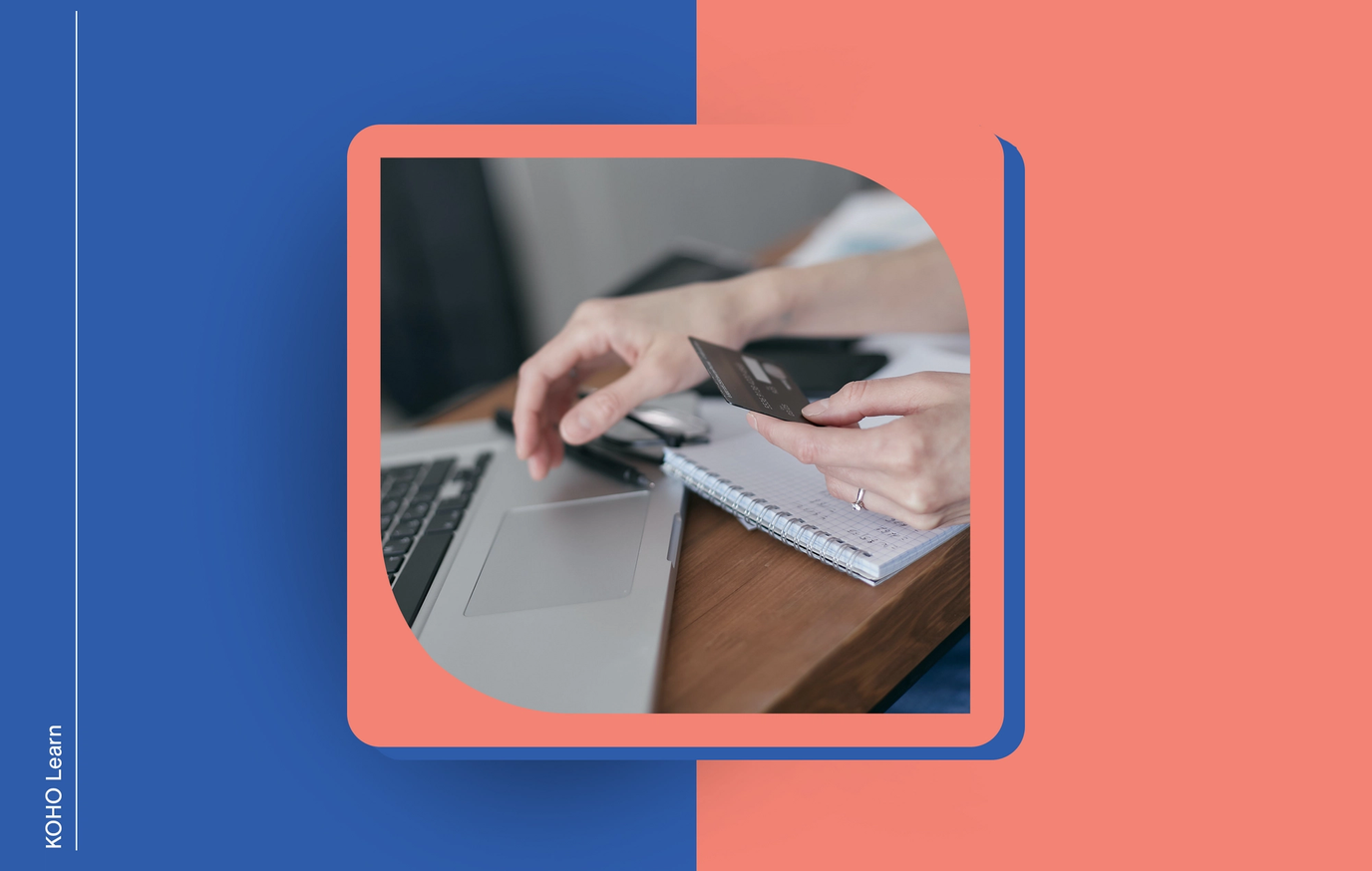Credit cards let you buy stuff now and pay later. When you use one, you're borrowing money that you'll need to pay back.
On the plus side, credit cards can help build your credit history, offer purchase insurance, give you rewards or cash back, and protect you from fraud.
But they have downsides too. Used carelessly, credit cards can damage your credit score, lead to debt problems, and cost you extra money in interest and fees.
Whether you're tapping to pay for coffee or shopping online, it's worth understanding what you're getting into with credit cards. Here's a simple breakdown to help you decide if credit cards make sense for your situation.
The pros of a credit card
When you use them smartly, credit cards can make your life easier.
They're Handy
Pay anywhere with just a tap or click. No need to carry cash. And when you're shopping online, saved card info makes checkout quick.
Short on cash before payday? A credit card can bridge the gap. And when you're out for dinner, splitting the bill is simple.
They Protect You
Not happy with something you bought? Your credit card company can help you dispute the charge. Most cards also won't hold you responsible for fraud. Plus, your money stays in your account while problems get sorted out.
They Can Save You Money
Some cards offer no interest for the first few months. This gives you time to pay off big purchases without extra costs. Just be sure to pay before the promo ends—or you might owe all that interest after all.
They Make Travel Easier
Try booking a hotel without a credit card—it's a pain. Many travel credit cards also throw in nice extras like airport lounge access, rental car insurance and no fees when you use them abroad.
They Give You Rewards
From cash back to free hotel stays, the right card can save you money. Cards with the best rewards often charge yearly fees, though.
They Help You Track Spending
Most cards let you search past purchases online. This helps at tax time or when checking what you've bought.
They Build Credit
Using credit cards responsibly builds your credit score in ways cash and debit cards can't. But you don't need to carry debt—paying in full each month works best for your score.
SPEND SMARTER. SAVE FASTER
The cons of a credit card
Credit cards aren't all perks and points. They come with some real risks too.
Too Easy to Overspend
That little piece of plastic makes spending almost too simple. Unlike cash, which runs out when you've spent it all, a credit card lets you keep buying until you hit your limit. This can lead to a nasty cycle of making tiny payments while your debt grows bigger. High balances can also hurt your credit score.
Debt Troubles
Credit cards let you spend money you don't have yet. If you can't pay off your balance each month, you'll pay extra in interest—sometimes a lot extra. The smart move is to use cards for convenience but pay them off completely every month. Not everyone can do this, and carrying high balances usually means you're spending beyond your means.
Interest Rates Can Change
Most credit cards have interest rates that go up or down based partly on Bank of Canada rates. When rates rise, your debt gets more expensive. If you pay your balance in full each month, this doesn't matter much. But if you carry debt, your monthly costs can jump without warning.
Hidden Fees
Pay late? That'll cost you. Some cards charge yearly fees just for having them. Others charge extra for adding family members to your account. And taking cash from an ATM with your credit card? That's almost always expensive. Some fees might be worth it if the card's rewards are good enough, but you should know what you're paying for.
SPEND SMARTER. SAVE FASTER
Managing your credit card smart
A credit card is just a tool. Like any tool, knowing how to use it properly makes all the difference. Here's how to stay out of trouble:
Stay in the Loop
Set up text alerts when your card gets used. This helps catch fraud early and reminds you how much you're spending.
Only Buy What You Can Actually Afford
The simplest rule is the most important: don't charge what you can't pay off. If you're using a 0% interest promotion, plan to pay it off well before that rate expires.
Pay in Full When Possible
Especially with rewards cards - carrying a balance usually costs more in interest than you earn in points or cashback.
Know Your Interest Rates
If you have multiple cards and can't pay them all off, focus on the highest-interest one first.
Never Miss a Payment
Even one late payment can hurt your credit score. Set reminders or automatic payments so you never forget.
Other options besides credit cards
Credit cards are handy and offer good perks, but they're not your only choice. Here are some alternatives to consider:
Personal Loans
Need to buy something big? A personal loan gives you a lump sum with fixed payments. Unlike credit cards, the interest rate doesn't change, and you know exactly when you'll be debt-free. These loans can also help combine credit card debt into one lower-interest payment.
Store Financing
Buying furniture, appliances or a new mattress? Many stores offer their own payment plans. Just watch out for "deferred interest" deals that charge you all the back interest if you don't pay in full by the end date.
If You're Short on Cash
When money's tight before payday, you have options safer than racking up credit card debt:
Ask family for a temporary loan (if you know you can pay it back)
Try early payday apps that let you access your earned wages sooner
Look into financial assistance programs
Stay away from payday loans - they charge massive fees that make your money problems worse.
An Alternative to Traditional Credit Cards: KOHO
KOHO offers a prepaid Mastercard that works like a credit card but without the debt risks. You load your own money onto it first, so you can only spend what you have. The app helps track your spending and saving too.
Want to build credit? KOHO has a Credit Builder program that reports your good payment history to credit bureaus. You could see your credit score improve in about six months.
Should you get a credit card
Used wisely, credit cards can be helpful tools. They're easy to use, protect your purchases, and earn rewards. They also build your credit score when you pay on time.
But they're not for everyone. If you struggle to control spending or often run short on money, a credit card might cause more problems than it solves.
Before you apply, be honest with yourself. Can you pay the full balance every month? Will you keep track of what you spend? If yes, a credit card probably makes sense for you.
The right choice depends on your habits and goals. There's no perfect answer for everyone.

About the author
Sam Boyer spends, invests, budgets, and writes. He enjoys writing about things he wishes he’d learned earlier — like spending, investing, and budgeting. A journalist originally from New Zealand, Sam has written extensively about consumer affairs, insurance, travel, health, and crime.
Read more about this author